
Manual Explotación de la Red Vial
& Sistemas Inteligentes de Transporte
Guía para profesionales!

Manual Explotación de la Red Vial
& Sistemas Inteligentes de Transporte
Guía para profesionales!
The World Road Association (PIARC) brings together international experts to study current issues in road transport. The core members are from road agencies representing over 120 countries who participate in 18 Technical Committees (TCs).
Technical Committee members meet to share information and develop guidance for the benefit of the global transport community. Each TC is involved in developing reports and recommendations on good practice – in this case in the form of a knowledge-based website. Knowledge sharing is at the core of the World Road Association’s mission.
The Technical Committee on Road Network Operations and Intelligent Transportation Systems (B.1) is concerned with how to obtain maximum benefit from the existing road network infrastructure, which is a top priority for many countries. Improvements to capacity, reliability, safety, energy saving and the use of new traffic technologies and cost-effective applications are particularly important. Benefits can be gained by interfacing with other transport modes and the use of Intelligent Transport Systems.
In creating this website the objective has been to create an authoritative source of information about Road Network Operations (RNO) and Intelligent Transport Systems (ITS) based on practical experience. It is written for practitioners in need of technical advice on ITS for roads and intermodal operations, with a special emphasis on countries with economies in transition.
The audience for this website will be a mix of policy-makers, transportation practitioners, professionals, educationalists and students who work in transport planning, logistics, security and operations, transportation infrastructure, highways and traffic engineering, and vehicle engineering.
The Association invites young professionals who will constitute tomorrow’s global road specialist community to participate in its activities.
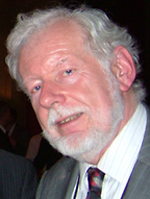
Dr John Miles is a specialist in the strategic aspects of developing road-based Intelligent Transport Systems. He has over 40 years experience in transport planning, transport research and government policy development in the UK and Europe, including Director-level operational experience in highway network operations for Greater London.
John has been active with the World Road Association (PIARC) since 1996 and has been involved with the PIARC Handbook on Intelligent Transport Systems from the start. He was lead editor for the 2nd Edition (2004), which was translated from English into French, Spanish and Chinese. He has been retained by PIARC to develop the latest on-line edition of the ITS Handbook, which provides a comprehensive introduction to the use of ITS in Road Network Operations.
In 2014 the Council of PIARC made John an Honorary Member of the Association in recognition of his outstanding contribution over the years.

Finella McKenzie specialises in the analysis of policy and institutional issues associated with transport technology, applications and measures, investments and deployments. Her expertise covers national, European and wider international transport policy across all modes, intermodal and freight transport, transport security, Europe’s satellite navigation system – GALILEO, Intelligent Transport Systems (ITS) and energy. She works with stakeholders across the transport sector and with intergovernmental organisations including the European Commission, the Organisation for Economic Cooperation and Development, and United Nations’ agencies.
She has been involved in many challenging projects including the European Commission study on funding of ITS deployments to support its ITS Action Plan, and developing a European Engagement Plan for the UK rail industry. She has wide experience in developing – and assessing – proposals seeking financial support for infrastructure investments, logistics services, innovative research and near market products – across the road, rail and maritime sectors.
Finella’s professional career started in the UK civil service where she held a range of positions over 17 years in the Departments for Environment and Transport. She has run her own consultancy business since 1999.
Finella is the Associate Editor of this website on Road Network Operations and Intelligent Transport Systems for the World Road Association.
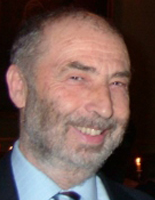 Keith Keen has worked in intelligent transport systems since the mid-eighties and before that on transport planning and modelling for the then London public authority. From 1990 to 2007, at the European Commission in Brussels, Belgium, he worked on various aspects of transport & ITS research and on the management of ITS deployment in Europe. During this time he took an active role in committees of the US Transportation Research Board and with the International Benefits, Evaluation and Costs of ITS working group.
Keith Keen has worked in intelligent transport systems since the mid-eighties and before that on transport planning and modelling for the then London public authority. From 1990 to 2007, at the European Commission in Brussels, Belgium, he worked on various aspects of transport & ITS research and on the management of ITS deployment in Europe. During this time he took an active role in committees of the US Transportation Research Board and with the International Benefits, Evaluation and Costs of ITS working group.
Since 2007 he has worked as an independent transport consultant producing with ITS colleagues an ‘Intelligent Transport Systems (ITS) Practitioners’ Guide to Europe’ for ITS (UK); assisting Kingston University London in a proposal for a Masters degree in Intelligent Transport Systems and Services, and more recently making a review of the European Union transport research landscape for a UK client.
He works with colleagues in the UK-based Transport Associates Network; is a member of several transport-related professional institutions, and holds a bachelors degree in Civil Engineering and a masters in Transportation and Traffic Planning.
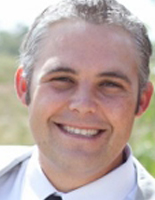 Adam Hopps has been managing stakeholders, organizing events and leading communications efforts in the transportation industry since 2009. Currently, he supports Transportation Safety Advancement Group (TSAG), a collection of public safety officials who advise the US DOT and conduct research projects on topics relating to the safety and efficacy of police, fire, EMS and traffic operations. Additionally, Adam leads projects focusing on Multimodal ITS and Connected Vehicle deployment in rural environments, and leads programming efforts for ITS America shows and events.
Adam Hopps has been managing stakeholders, organizing events and leading communications efforts in the transportation industry since 2009. Currently, he supports Transportation Safety Advancement Group (TSAG), a collection of public safety officials who advise the US DOT and conduct research projects on topics relating to the safety and efficacy of police, fire, EMS and traffic operations. Additionally, Adam leads projects focusing on Multimodal ITS and Connected Vehicle deployment in rural environments, and leads programming efforts for ITS America shows and events.
Before joining ITS America, Adam managed a Borders Bookstore in downtown Washington, D.C. and attended the University of San Francisco.
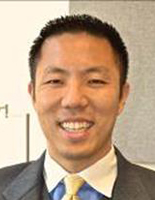 Mr. Son has been planning, designing, and overseeing the implementation of ITS systems with experience in the design and construction of ITS elements, and being familiar with the end-user systems of ITS software, provides a unique understanding of how ITS solutions are being used today. The Connected Vehicle Technology Scan and Assessment project researched a broad and evolving range of currently available and emerging “transformative” technologies, with the potential to impact the development of critical components within the Connected Vehicle program. Mr. Son manages synthesis research, professional development and multi-modal projects at ITS America.
Mr. Son has been planning, designing, and overseeing the implementation of ITS systems with experience in the design and construction of ITS elements, and being familiar with the end-user systems of ITS software, provides a unique understanding of how ITS solutions are being used today. The Connected Vehicle Technology Scan and Assessment project researched a broad and evolving range of currently available and emerging “transformative” technologies, with the potential to impact the development of critical components within the Connected Vehicle program. Mr. Son manages synthesis research, professional development and multi-modal projects at ITS America.
 Chris Allan has studied freight movements for many years. His PhD thesis focused on the movement of freight in the Victorian period, in particular global distribution patterns of coal and their impact on the shape of the world economy. It also analysed coal’s distribution within the urbanised environment of Victorian London in the period pre-dating motorisation, which has offered an unparalleled knowledge of traditional non-motorised freight transport approaches.
Chris Allan has studied freight movements for many years. His PhD thesis focused on the movement of freight in the Victorian period, in particular global distribution patterns of coal and their impact on the shape of the world economy. It also analysed coal’s distribution within the urbanised environment of Victorian London in the period pre-dating motorisation, which has offered an unparalleled knowledge of traditional non-motorised freight transport approaches.
Chris has been utilising this knowledge to help create sustainable solutions to continued urban growth and resultant freight movements and distribution challenges.This has continued to develop his interests on the impact of freight on communities, and the integration of distribution into the urban fabric whilst maintaining and enhancing liveability and reducing accidents, congestion, environmental and noise pollution.
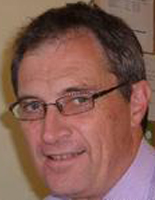 John is an advisor, analyst and project manager in sustainable transport operations (particularly public transport), transport planning and travel information. He is an economics graduate of the University of Cambridge (Queens’ College) and is a Chartered Fellow of the Chartered Institute of Logistics & Transport and a Member of the Chartered Institution of Highways & Transportation and of the Transport Planning Society. He is a Winston Churchill Fellow, having travelled to Hong Kong, Australia and Singapore in 2000 to study busways, electronic information systems for public transport users, and the interface between land-use and public transport planning.
John is an advisor, analyst and project manager in sustainable transport operations (particularly public transport), transport planning and travel information. He is an economics graduate of the University of Cambridge (Queens’ College) and is a Chartered Fellow of the Chartered Institute of Logistics & Transport and a Member of the Chartered Institution of Highways & Transportation and of the Transport Planning Society. He is a Winston Churchill Fellow, having travelled to Hong Kong, Australia and Singapore in 2000 to study busways, electronic information systems for public transport users, and the interface between land-use and public transport planning.
John originally trained as a senior manager in UK bus and coach industry and holds the UK professional competence qualification in national and international passenger transport. He also holds a bus and coach driving licence, and is a qualified PRINCE2 practitioner. He is a member of several professional associations and interest groups, including the Public Transport Interest Group of ITS (UK), and is a Vice-Chair of the National Association of Taxi Users.
Having worked in the past on several European Commission-supported international transport research projects, John has recently been spending much time working in Nigeria with the urban transport programme of the Nigerian Infrastructure Advisory Facility (NIAF). Other international experience includes a year living in India, working as a volunteer with a development organisation, after leaving university.
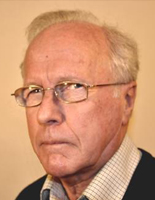 Richard Bossom has spent over 35 years working in ITS. He started in its early days when Urban Traffic Control (UTC) was the only form of ITS available, first as a customer and then working for the Plessey Company in the UK. Eventually Richard became the manager for UTC systems produced by Plessey and by the UK division of its successor Siemens, leading a team that was responsible for their design, installation and maintenance.
Richard Bossom has spent over 35 years working in ITS. He started in its early days when Urban Traffic Control (UTC) was the only form of ITS available, first as a customer and then working for the Plessey Company in the UK. Eventually Richard became the manager for UTC systems produced by Plessey and by the UK division of its successor Siemens, leading a team that was responsible for their design, installation and maintenance.
In 1992 Richard switched to working on ITS Architectures, first as the Siemens member of the team that developed version 1 of the US National ITS Architecture, first published in 1996, for which he was responsible for the whole of the Logical Architecture. Richard then became involved in the European ITS Framework Architecture, first leading the team that developed version 1 in 2000. Since then he has retained an intimate involvement with that Architecture (now known as the FRAME Architecture), leading the FRAME-S project that developed its tools and updating the Architecture to support cooperative systems in the E-FRAME project.
Richard has presented many papers at ITS World congresses and other events, either on his own or in partnership with others. He has also collaborated on the development of ITS Architectures for various clients, has been one of the main presenters for many FRAME Architecture related seminars and workshops, and has provided advice on ITS Architecture development in several parts of the world. He has also kept some involvement in Urban ITS through completing surveys for the location and content of variable message signs and writing the method statement for the initialisation of bus priority at signalised junctions in London.
Richard has been a member of ISO TC204 WG1 and CEN TC278 WG13 (Architecture and Taxonomy) since 1997, being its convenor from 2010 to 2015. He is also involved in other Working Groups within ITS TC204 and CEN TC278. Since its founding in 2009 he has also been a European member of the EU-US Task Force set up in the European Commission and the US DoT and produced its glossary of terms.
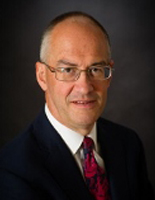 Hugh Boyes is a Chartered Engineer, a Fellow of the Institution of Engineering and Technology (IET) and holds the Certified Information Systems Security Professional (CISSP) credential issued by the International Information Systems Security Certification Consortium (ISC)2. He divides his time between working as a Principal Fellow at the University of Warwick, acting as the Cyber Security lead for IET, and undertaking cyber security consultancy assignments. At the University he focuses on cyber resilience and the cyber security of physical-cyber systems, whilst at the IET he focuses on developing cyber security skills initiatives for engineering and technology communities. He was also a technical author on the recently published report ‘Security-minded building information modelling, digital built environments and smart asset management’ (PAS) 1192-5
Hugh Boyes is a Chartered Engineer, a Fellow of the Institution of Engineering and Technology (IET) and holds the Certified Information Systems Security Professional (CISSP) credential issued by the International Information Systems Security Certification Consortium (ISC)2. He divides his time between working as a Principal Fellow at the University of Warwick, acting as the Cyber Security lead for IET, and undertaking cyber security consultancy assignments. At the University he focuses on cyber resilience and the cyber security of physical-cyber systems, whilst at the IET he focuses on developing cyber security skills initiatives for engineering and technology communities. He was also a technical author on the recently published report ‘Security-minded building information modelling, digital built environments and smart asset management’ (PAS) 1192-5
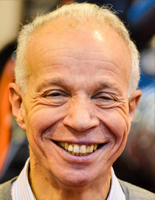 Oliver Carsten is Professor of Transport Safety at the Institute for Transport Studies, University of Leeds. His major research focus is on driver interaction and safety with new driver support systems. He led the UK national project on Intelligent Speed Adaptation and chairs the Road User Behaviour Working Party of PACTS, the Parliamentary Advisory Council for Transport Safety. He has provided advice on safety policy to the UK Department for Transport and the European Transport Safety Council. He is editor-in-chief of the academic journal Cognition, Technology and Work.
Oliver Carsten is Professor of Transport Safety at the Institute for Transport Studies, University of Leeds. His major research focus is on driver interaction and safety with new driver support systems. He led the UK national project on Intelligent Speed Adaptation and chairs the Road User Behaviour Working Party of PACTS, the Parliamentary Advisory Council for Transport Safety. He has provided advice on safety policy to the UK Department for Transport and the European Transport Safety Council. He is editor-in-chief of the academic journal Cognition, Technology and Work.
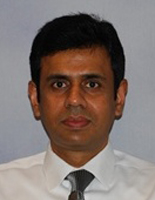 Mashrur (Ronnie) Chowdhury is the Eugene Douglas Mays Professor of Transportation at Clemson University. Having held senior engineering positions from 1994 to 2000 in industry and having been an educator since 2000, Dr. Chowdhury has been involved in the practice, education and research of Intelligent Transportation Systems (ITS). Dr. Chowdhury’s primary research focus in ITS is the applications for connected vehicles technology for real-time traffic and energy management. His research has been sponsored by the National Science Foundation, U.S. Department of Transportation, state transportation agencies and university transportation centers. He is the former chair of the American Society of Civil Engineers (ASCE) Committee on Computing in Transportation, was elected to the IEEE ITS Society Board of Governors in 2010, and is an ASCE Fellow. Dr. Chowdhury is an associate editor of the IEEE Transaction on Intelligent Transportation Systems and the Journal of Intelligent Transportation Systems. He also serves as an editorial board member for Transportation Research Part C and the Journal of Transportation Security, and has published two textbooks and several book chapters on ITS.
Mashrur (Ronnie) Chowdhury is the Eugene Douglas Mays Professor of Transportation at Clemson University. Having held senior engineering positions from 1994 to 2000 in industry and having been an educator since 2000, Dr. Chowdhury has been involved in the practice, education and research of Intelligent Transportation Systems (ITS). Dr. Chowdhury’s primary research focus in ITS is the applications for connected vehicles technology for real-time traffic and energy management. His research has been sponsored by the National Science Foundation, U.S. Department of Transportation, state transportation agencies and university transportation centers. He is the former chair of the American Society of Civil Engineers (ASCE) Committee on Computing in Transportation, was elected to the IEEE ITS Society Board of Governors in 2010, and is an ASCE Fellow. Dr. Chowdhury is an associate editor of the IEEE Transaction on Intelligent Transportation Systems and the Journal of Intelligent Transportation Systems. He also serves as an editorial board member for Transportation Research Part C and the Journal of Transportation Security, and has published two textbooks and several book chapters on ITS.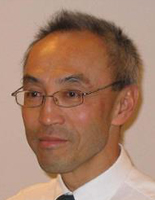 Dr Henri Chua, who is Director and Founder of IM Technologies Limited, a boutique transport advisory, is a multi-modal transport specialist. He has more than 30 years of international hands-on experience, including intelligent transport systems, road sector finance, business case development, economic and financial appraisal, public-private partnerships, procurement and contracts, and knowledge transfer. This extensive experience was gained in more than 25 countries, from Australia to the Americas. He has researched and consulted on bus transport ITS, highway traffic management and control systems, road accident response ITS, and road user charging and tolling. Dr Chua has a strong innovative and performance record on PPP road advisory, gained from 60+ projects across 20 countries, with a combined value in excess of US$30 billion, and for all principal stakeholders, including five road agencies to pilot their PPP road programmes. He was a past Chair of the World Road Association's Technical Committee on Road Financing (2008-2011). Dr Chua has a PhD in Transport Engineering and other tertiary qualifications in accounting, finance and computer science. He is also a Chartered Fellow of the Chartered Institute of Logistics and Transport.
Dr Henri Chua, who is Director and Founder of IM Technologies Limited, a boutique transport advisory, is a multi-modal transport specialist. He has more than 30 years of international hands-on experience, including intelligent transport systems, road sector finance, business case development, economic and financial appraisal, public-private partnerships, procurement and contracts, and knowledge transfer. This extensive experience was gained in more than 25 countries, from Australia to the Americas. He has researched and consulted on bus transport ITS, highway traffic management and control systems, road accident response ITS, and road user charging and tolling. Dr Chua has a strong innovative and performance record on PPP road advisory, gained from 60+ projects across 20 countries, with a combined value in excess of US$30 billion, and for all principal stakeholders, including five road agencies to pilot their PPP road programmes. He was a past Chair of the World Road Association's Technical Committee on Road Financing (2008-2011). Dr Chua has a PhD in Transport Engineering and other tertiary qualifications in accounting, finance and computer science. He is also a Chartered Fellow of the Chartered Institute of Logistics and Transport.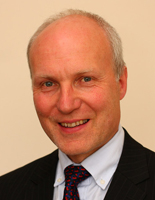 Geoff is a Regional Director with extensive knowledge following 20 years experience in front line transport management and 10 years in consultancy with AECOM. Geoff’s industrial career included time as a vehicle scheduler, Transport Manager and Regional Distribution Manager. Geoff was responsible for running a large fleet of trucks on his Operator’s licence. He has considerable experience in change management in complex budget driven businesses.
Geoff is a Regional Director with extensive knowledge following 20 years experience in front line transport management and 10 years in consultancy with AECOM. Geoff’s industrial career included time as a vehicle scheduler, Transport Manager and Regional Distribution Manager. Geoff was responsible for running a large fleet of trucks on his Operator’s licence. He has considerable experience in change management in complex budget driven businesses.
Geoff is familiar with wider transport issues attaining a BSc Honours degree in Transport and Business Management at Aston University. Additionally Geoff represented industry through Chairmanship of FTA's Freight Council, as an active Chartered Fellow, and Chairman of the Environment and Sustainability Forum of the Institute of Logistics and Transport (FCILT). He is Hon. Sec. of the Freight Interest Group of ITS (UK) and in this role he has organised many events exploring the use of technology in freight transport.
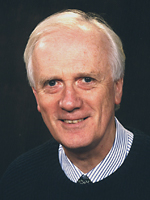 David Crawford is a graduate of Oxford University, UK. He has written and researched globally on ITS since 1994. He was launch editor, and continues as contributing editor, of ITS International; and also writes for Traffic Engineering and Control, Surveyor, and the Transport Network website.
David Crawford is a graduate of Oxford University, UK. He has written and researched globally on ITS since 1994. He was launch editor, and continues as contributing editor, of ITS International; and also writes for Traffic Engineering and Control, Surveyor, and the Transport Network website.
He has acted as European Research Editor for Fine Research, US (an affiliate of ITS America) on a series of International ITS Reference Reports for the Japanese Government; and as a subconsultant to Ian Catling Consultancy (UK) on studies of electronic road and congestion charging for European and Japanese organisations.
He has served as a juror in the biennial Intertraffic Amsterdam Innovation Awards, and as a paper reviewer for World and European ITS congresses.
He was a researcher for and contributor to the 2004 edition of the PIARC (World Road Organisation) ITS Handbook. He is a member of the Transport Associates Network (UK) of independent consultants, and an affiliate of team red Deutschland GmbH, a European-headquartered mobility management consultancy.
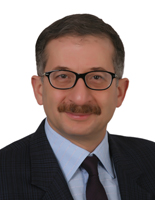 Dr. El-Araby has over 30 years technical and research experience in transportation planning, traffic engineering, intelligent transportation systems and covering transport projects in USA, Europe, and the Middle East. He has knowledge and experience with a wide variety of transportation engineering tools and systems. Dr. El-Araby received his Ph.D. in transportation planning and artificial intelligence from Texas A&M University, USA in 1992.
Dr. El-Araby has over 30 years technical and research experience in transportation planning, traffic engineering, intelligent transportation systems and covering transport projects in USA, Europe, and the Middle East. He has knowledge and experience with a wide variety of transportation engineering tools and systems. Dr. El-Araby received his Ph.D. in transportation planning and artificial intelligence from Texas A&M University, USA in 1992.
Between 1998 and 2000, Dr. El-Araby was involved in ITS research and project activities at the Traffic Technology Department at the Technical University of Munich and worked in several important trans-European and national transport and ITS projects in Germany and Europe.
Between 2000 and 2005, Dr. El-Araby worked as Head of ITS Group at Dorsch Consult Engineering Office in Munich, Germany and worked in several leading European ITS projects . He has also worked as transport evaluation expert in the European Investment Bank-funded project.
Since March 2005, Dr. El-Araby has worked as Professor of Transport Planning and Traffic Engineering at Ain Shams University in Cairo, Egypt, in addition to his work as a free-lane consultant in Europe and the Middle East. Dr. El-Araby is also co-founder of ITS Egypt association. He has worked as an Expert in the ITS Masterplan in Bahrain and National ITS Development Strategy in Poland. As part of the EU ITS Action Plan and the EC 2DECIDE project, Dr. El-Araby was a Task Leader for the development of a European ITS Toolkit and an evaluation database for assisting decision-makers in selecting and developing ITS solutions. Dr. El Araby was part of the Evaluation and Steering Group for the German national research program Future Megacities funded by the German Ministry of Education and Research. Dr. El-Araby is currently heading the Project Management Steering Group for the Riyadh Bus ITS Project in Saudi Arabia, as well as senior ITS Expert for the on-going project for the development of a national tracking and tracing system for hazardous goods road transport in the United Arab Emirates.
 Jean Hopkin is from the Transport Research Laboratory in the UK. She has over 40 years’ research experience in design, analysis and management of a wide range of transport and road safety projects. She is a social scientist, specialising in survey research and evaluation. Jean has worked on numerous major projects and has achieved international recognition.
Jean Hopkin is from the Transport Research Laboratory in the UK. She has over 40 years’ research experience in design, analysis and management of a wide range of transport and road safety projects. She is a social scientist, specialising in survey research and evaluation. Jean has worked on numerous major projects and has achieved international recognition.
Much of her recent work has been concerned with evaluation of Intelligent Transport Systems, and she has been involved in developing evaluation frameworks and methodologies, assessing projects, and analysing the impacts of applications in demonstration projects. Jean provided the first secretariat for the International Benefits and Costs Working Group, and secretariat for the European Evaluation Expert Group in the European Commission’s TEMPO programme. Recently she has worked on projects investigating the role of cooperative vehicle systems for road authorities for clients in the UK, Europe and Asia.
She has written more than 80 research publications. Jean was joint author of a paper which won the prize for the best in the Economics Section at the 1993 World Conference on Transport Research and in 2010 a series of her projects won a Prince Michael International Road Safety Award.
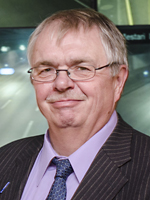
Professor Risto Kulmala works as Principal Advisor on ITS at the Finnish Transport Agency, and has previously worked as Research Professor on ITS at VTT in Finland and as Adjunct Professor at Lund University, Sweden. He has a long experience in road safety, analysis of benefits, costs and technical performance of ITS, ICT infrastructure and development of ITS deployment strategies and roadmaps. He has written more than 300 publications in terms of scientific papers, reports, and congress papers.
Kulmala has been the coordinator of several major national and international R&D and deployment programmes and projects, and acts as a member of various international ITS bodies. Currently he is chairing the ITS Group of the Conference of European Directors of Road CEDR, the iMobility Forum's Implementation Road Maps Working Group, and is the member of the iMobiltiy Forum Steering Group, Cooperative ITS Platform, Board of Directors for the ITS World Conferences, the IRF Policy Committee on ITS, IBEC Management Committee, and the Technical Academy of Finland.
 Alexandra Luck works in the fields of built environment and infrastructure asset management, risk management and safety as well as security-minded approaches. She has extensive experience of the development, implementation and auditing of proportionate and structured management systems within the construction and transportation sector as well as the forensic investigation and analysis of incidents. Her work has also involved enhancing service delivery through improved cross-sector and cross-agency working. She was the lead technical author on the recently published Publicly Available Specification (PAS) 1192-5 ‘Security-minded BIM, digital built environments and smart asset management’.
Alexandra Luck works in the fields of built environment and infrastructure asset management, risk management and safety as well as security-minded approaches. She has extensive experience of the development, implementation and auditing of proportionate and structured management systems within the construction and transportation sector as well as the forensic investigation and analysis of incidents. Her work has also involved enhancing service delivery through improved cross-sector and cross-agency working. She was the lead technical author on the recently published Publicly Available Specification (PAS) 1192-5 ‘Security-minded BIM, digital built environments and smart asset management’.
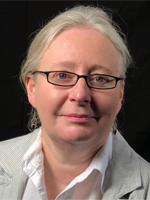
Jennie joined ITS United Kingdom, the Intelligent Transport Society for the UK, in 1998. Prior to that, she worked in the City Engineer’s Department at the Corporation of London, the local authority for the “Square Mile” financial district of London. Jennie began her working life with the then British Rail in 1986.
Jennie has a BA (Hons) in History from Kings College London, and an MA from the UK’s Open University. She wrote her MA thesis on the institutional framework of the introduction of camera technology for traffic applications in London.
She started with ITS (UK) as Membership Secretary, and was promoted to Secretary General in 2004.
Jennie chairs the Network of National ITS Associations, an organisation of 25 European ITS associations.
Jennie is originally from Sweden, but is now a happily naturalised Londoner.
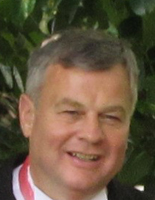 Keith McCabe is the Managing Director of KAM Futures, a research and development consultancy based in Manchester in the United Kingdom. Keith has over 30 years’ experience in the transport and ICT industries and is a Chartered Engineer with the Institution of Engineering and Technology.
Keith McCabe is the Managing Director of KAM Futures, a research and development consultancy based in Manchester in the United Kingdom. Keith has over 30 years’ experience in the transport and ICT industries and is a Chartered Engineer with the Institution of Engineering and Technology.
Keith is the Honorary Secretary of ITS UK Smart Environment Interest Group and Chair of the ITS UK Carbon Working Group. He is also a member US Transport Research Board Regional Transport Systems Management and Operations Committee and chairs the subcommittee on Sustainability in Transport Operations.
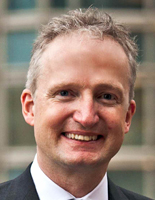 Andrew is one of the world’s leading management consultants focused on the design and practical application of Intelligent Transport Systems (ITS) and Road User Charging (RUC) schemes in complex regulatory environments.
Andrew is one of the world’s leading management consultants focused on the design and practical application of Intelligent Transport Systems (ITS) and Road User Charging (RUC) schemes in complex regulatory environments.
He is the CEO of Transport Technology Consultants a leading professional services firm based in Hong Kong that delivers a full spectrum of management consultancy services to the highest level of government agencies and private sector organizations. Services include: system design; policy & regulatory stress testing; policy roadmapping; business process design; procurement strategy development; scoping funding & financing mechanisms; performance management regime & contracts development; programme management and long-term implementation support.
He has delivered his management consulting services to clients internationally since 1990, including UK, Switzerland, Netherlands, Australia, Chile, USA, South Africa, Asia, Singapore, Indonesia, Hong Kong, Taiwan, and China.
 Martin is an Associate Director working for AECOM’s Technology Services team. Martin has 18 years’ experience in Advanced Traveller Information Systems with a specific focus on Public Transport Information Systems. Martin has specified and managed the implementation of several real time passenger information systems and is an active member of the UK’s Real Time Information Group who has participated in working groups developing data protocols and disruption management information. Martin previously worked on the UK trial and early implementation of RDS-TMC and also on the EU Forth Framework TABASCO project which implemented Strategic Variable Message Sign Decision Support Tools.
Martin is an Associate Director working for AECOM’s Technology Services team. Martin has 18 years’ experience in Advanced Traveller Information Systems with a specific focus on Public Transport Information Systems. Martin has specified and managed the implementation of several real time passenger information systems and is an active member of the UK’s Real Time Information Group who has participated in working groups developing data protocols and disruption management information. Martin previously worked on the UK trial and early implementation of RDS-TMC and also on the EU Forth Framework TABASCO project which implemented Strategic Variable Message Sign Decision Support Tools.
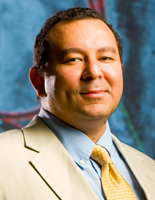 Dr. Sadek is a Professor in the Department of Civil, Structural and Environmental Engineering at the University at Buffalo (UB). He also serves as the Director of UB’s Institute for Sustainable Transportation and Logistics, and the Director of the Transportation Informatics Tier I University Transportation Center. Before joining UB in 2008 to lead the development of the department’s interdisciplinary program in transportation systems engineering, Dr. Sadek was an Associate Professor in the School of Engineering at the University of Vermont (UVM), and held a secondary appointment in the Department of Computer Science. He also served as co-Director of UVM’s Complex Systems Center. Dr. Sadek is the recipient of the 1998 Milton Pikarsky Award for the best dissertation in the field of Transportation Science and Technology, awarded by the Council of University Transportation Centers, a National Science Foundation (NSF) CAREER award, and a 2011 IBM Smarter Planet Faculty Innovation Award.
Dr. Sadek is a Professor in the Department of Civil, Structural and Environmental Engineering at the University at Buffalo (UB). He also serves as the Director of UB’s Institute for Sustainable Transportation and Logistics, and the Director of the Transportation Informatics Tier I University Transportation Center. Before joining UB in 2008 to lead the development of the department’s interdisciplinary program in transportation systems engineering, Dr. Sadek was an Associate Professor in the School of Engineering at the University of Vermont (UVM), and held a secondary appointment in the Department of Computer Science. He also served as co-Director of UVM’s Complex Systems Center. Dr. Sadek is the recipient of the 1998 Milton Pikarsky Award for the best dissertation in the field of Transportation Science and Technology, awarded by the Council of University Transportation Centers, a National Science Foundation (NSF) CAREER award, and a 2011 IBM Smarter Planet Faculty Innovation Award.
Dr. Sadek’s research interests span a wide range of topics including transportation modeling and simulation, intelligent transportation systems, artificial intelligence applications in transportation, traffic engineering, transportation planning, and infrastructure management. His research has been most recently funded by several agencies, including NSF, the Federal Highway Administration, New York State Energy Research and Development Authority (NYSERDA), New York State Department of Transportation (NYSDOT), Region II University Transportation Research Center (UTRC2), among others. Dr. Sadek is coauthor of two Transportation textbooks, along with more than 100 papers in peer-refereed journals and refereed conference proceedings.
He currently serves as Associate Editor of the Transportation Research – Part C journal, and is on the Editorial Board Member of the Journal of Intelligent Transportation Systems. He is a member of the TRB committee on Artificial Intelligence and Advanced Computing Applications (ABJ70), and the committee on Surface Transportation Weather. He is also a member of the Advanced Technologies committee of the Transportation and Development Institute (T&DI) of the American Society of Civil Engineers (ASCE).
 Ms. Shuman is a management consultant who has worked at the heart of the ‘anytime/anywhere’ revolution for over twenty years, helping to pioneer new products, new markets and new ventures. She authored the first Primer on Intelligent Vehicle Highway Systems, led strategy and product management for one of the earliest online real-time location based service platforms, and helped to build a revolutionary work-at-home order-taking service for quick service restaurants.
Ms. Shuman is a management consultant who has worked at the heart of the ‘anytime/anywhere’ revolution for over twenty years, helping to pioneer new products, new markets and new ventures. She authored the first Primer on Intelligent Vehicle Highway Systems, led strategy and product management for one of the earliest online real-time location based service platforms, and helped to build a revolutionary work-at-home order-taking service for quick service restaurants.
Ms. Shuman has been involved with the intelligent transportation industry since its inception, leading the establishment of new wireless and automotive telematics communities and technologies, national and international standards, and global cross-industry liaison efforts to enable safer, more efficient, and more convenient systems. Ms. Shuman currently serves as Vice President, Industry Programs for the Connected Vehicle Trade Association (CVTA), an international, non-profit trade association which advances the interests of organizations involved in vehicle communications. She is also a Member of the Transportation Research Board (TRB)’s NCHRP IDEA Committee, which awards seed-funding for innovative transportation projects.
Ms. Shuman previously served as Executive Director of Corporate Strategy for Ygomi LLC and its five subsidiaries, which were start-up and established firms providing software, helpdesk, automotive telematics & business process outsourcing. Prior to Ygomi, Ms. Shuman was Director of Strategy for Verety, a start-up which provided services for quick service restaurants. She has also held leadership roles in corporate venture development, marketing and strategy at SEI, an IT professional services firm; and NAVTEQ, a digital map content provider.
Ms. Shuman is the author of numerous papers and articles on ITS and communication, and a frequent public speaker. She is named on four patents related to in-vehicle computing, and holds a Bachelor of Arts with highest honors from the University of Michigan.
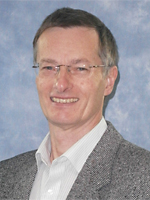 Alan is the Chief Research Scientist and Research Director, Transportation at TRL where he has been working on the application of new technology to transport for 25 years.
Alan is the Chief Research Scientist and Research Director, Transportation at TRL where he has been working on the application of new technology to transport for 25 years.
He is an internationally recognised expert in “Human-Machine Interaction” (HMI) in the driving environment and was co-author of the authors of the “European Statement of Principles on HMI"" through his work within the eSafety initiative, where he co-chairs of the HMI Working Group.
He was also an active member of the responsible international standards committee regularly participating in meetings with European, US, Canadian and Japanese colleagues.
He was recently appointed to the EU-US Working Group on Driver Distraction following the EU-US High Level Cooperation agreement and continues to be involved in the international IHRA (International Harmonized Research agenda) group and on the Management Committee of IBEC (International Benefit Evaluation and Costs) group and has a continuing research interest in techniques to assess the safety and benefit of Intelligent Transport Systems (ITS).His consultancy activities focus on providing advice on policy and interoperability issues to Government, developing research programmes and carrying out specific technical and human factors studies in Intelligent Transportation Systems.
In terms of academic activities, he participates in University teaching at MSc level, supervises PhD students and is Editor in Chief of an international peer-review journal of Intelligent Transport Systems.
As the English language secretary to the PIARC Finance and Economic Evaluation Group (1996-2003) he gained experience of the role of transport appraisal and evaluation in countries outside the UK and in 2013 co-authored a report for the UK government on international comparisons of transport appraisal practice. He was made a Visiting Fellow at the Institute for Transport Studies at the University of Leeds on his retirement from the Department for Transport in 2011 and has since undertaken a range of research and consultancy studies. These have included reviews of the application and use of appraisal methods in Britain and in other countries for the Department for Transport and a comparable study of the EU member states participating in the SINTROPHER project, led by the late Sir Peter Hall.
He recently co-authored a report sponsored by the RAC Foundation on transport policy and the role of appraisal, has authored papers on the appraisal and on evaluation of transport projects for the OECD and acted as specialist adviser to the House of Lords’ Economic Affairs Committee for their recent inquiry into the economics of High Speed 2.
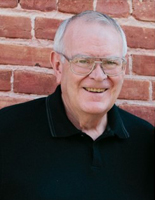
* Denotes member of the World Road Association Technical Committee on Road Network Operations and ITS